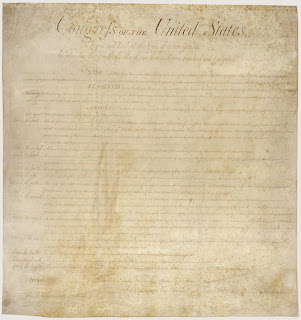Nick Farrell’s ideas for the melting pot
1. A teacher is also a student, and the teacher and the student are members of an Order.
-
The Bill of Rights applies to all those who have signed it and also indicates their attitude to individuals, Orders and Groups who have not.
For the Student:
-
has the right and duty to ask questions and receive an answer which they can understand.
-
has the right to be respected.
-
is allowed to develop their individuality and not have that dictated to them by the Order or the teacher.
-
should not be exploited for any spiritual or material gain.
-
should not be prejudiced against on the basis of the sex, religion, race, sexual preference or political views.
-
should not be engaged in attacking, defaming, slandering another member of another spiritual group. Debates about teaching are acceptable but these must not become personal.
-
No student should be forced to do anything that is against their own moral code or the laws of the land.
-
A student will do all they can to support the order.
-
A student will always act in a fraternal way and assist their brothers and sisters to develop on the path of return.
-
No student will attempt to control another or use magic to harm another.
-
A student the right to leave a group if they wish without having to receive pressure to stay.
-
A student will work the system they have been given under instruction.
A teacher has
-
The right to be respected.
-
The right to refuse membership or grades to those who do not meet the order’s requirements.
-
The right to have their version of the system followed.
-
The right to call for assistance and not have to do everything themselves.
-
The right to say that they do not know an answer to a question, but will find out.
-
The right to be mortal.
-
to follow their spiritual path and not stop for the sake of the Order
An order
-
Recognises the right of another Order to exist even if its views are the antithesis of its own.
-
Does attempt to get another Order to do its bidding or claim “seniority” over it.
-
Does not take legal action against another.
-
Does not recognise the grades of another or attempt to steal members from another group. (People may leave to join another, but they must not be actively head-hunted recognising grades is a way to make it easier to jump ship).
-
Does not market or advertise itself as being superior to another Order.
-
Does not publicly defame or humiliate another group or an individual knowing them to be a member of that group.
-
Is not a business designed to gain any economic power but is a spiritual organisation designed for the improvement of its members.
-
Does not attempt magical attacks on another group or individual.
-
Attempt to keep channels of communication open with other Orders.
-
Do not attempt to interfere with the internal workings of other Orders or create schisms in other groups.
-
If disputes arise between members of groups then this must be dealt with between group leaders perhaps under the assistance of a neutral third party.

Comments are closed